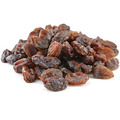All about... vaginal dryness
Is vaginal dryness ruining your sex life or causing daily discomfort? Rest assured, you're not alone - and there's plenty you can do to beat it. Here's all you need to know... By Jane Murphy

What is it?
Your vagina should naturally be moist. This moisture is mainly produced by two glands - known as Bartholin's glands - at the neck of the womb, and moves slowly down through the vagina, removing dead cells and harmful bacteria. It is slightly acidic to help fight off infections, such as thrush. When women are sexually aroused, the glands produce extra moisture to provide lubrication.
However, many women suffer from vaginal dryness, which can make sex painful or difficult - and can also cause extra discomfort during tampon insertion or smear tests. In more serious cases, women may experience pain or itching when urinating, exercising or even just sitting down. The condition can also puts you at increased risk of infection.
US research suggests that around 17 per cent of women under the age of 50 experience vaginal dryness. However, it becomes far more common after the menopause, when it affects more than half of us, according to the 2006 Menopause Matters survey.
What causes it?
Vaginal dryness affects many post-menopausal women due to the drop in oestrogen levels at this stage in life, which results in thinning of the womb lining and decreased elasticity. Because the vagina loses some of its moisture, it also becomes less acidic - which means it's less able to fight off infections.
Vaginal dryness can occur for a number of other reasons, such as increased stress or not enough sexual arousal or foreplay. Certain chemicals and additives found in swimming pools, hot tubs, perfumed bath and shower products and washing powders can upset the delicate pH balance in the vagina, too. Some medicines, such as antidepressants or allergy treatments, may also lead to dryness. If you're concerned about any possible side effects of medication, ask your GP for advice.
How can I prevent it?
If you experience vaginal dryness during sex, it can help to work on your foreplay technique. Rule number one? Don't rush things. Make sure you are properly aroused and lubricated before full penetration takes place. Also, try using a water-soluble lubricant that mimics your natural lubrication. An organic brand will help maintain a healthy internal pH balance so guard against infection.
It's important to remember that the vagina is self-cleansing, so there's no need to wash internally. Only use warm water and very mild soap to clean the area around your vagina. And avoid using perfumed soaps, shower gels and bubble bath. It's also a good idea to steer clear of biological washing powders and detergents.
How is it treated?
If the self-help techniques mentioned above don't make an immediate difference, consult your GP. Remember, vaginal dryness is very common and easily addressed. Your GP will be able to advise on the best lubricants to try and how to apply them.
You may also be prescribed an oestrogen treatment to combat dryness. This can take the form of small tablets inserted into the vagina with an applicator, vaginal rings, creams or pessaries. Although this is a type of hormone replacement therapy (HRT), there is minimal risk of side effects because the treatment is very localised.
Finally, if the condition is being caused or exacerbated by an underlying issue, such as stress or relationship problems, your doctor can offer advice on how to address these. It will also help to take steps to tackle stress independently: a healthy diet, regular exercise and relaxation techniques, such as meditation or gentle yoga, can all make a huge difference to your overall wellbeing.
Where can I find out more?
For more information and advice on vaginal dryness, contact www.womens-health-concern.org
You might also like...
10 of the best vaginal lubricants
Help for health issues that may affect your sex life










